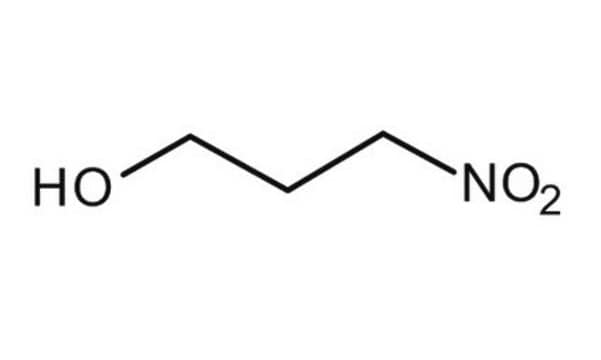N22908
3-Nitropropionic acid
97%
Synonym(s):
β-Nitropropionic acid, 3-Nitropropanoic acid, Bovinocidin, Hiptagenic acid
About This Item
Recommended Products
Quality Level
assay
97%
form
crystals
mp
68-70 °C (lit.)
storage temp.
2-8°C
SMILES string
OC(CC[N+]([O-])=O)=O
InChI
1S/C3H5NO4/c5-3(6)1-2-4(7)8/h1-2H2,(H,5,6)
InChI key
WBLZUCOIBUDNBV-UHFFFAOYSA-N
Looking for similar products? Visit Product Comparison Guide
Biochem/physiol Actions
Replaced by
signalword
Danger
hcodes
Hazard Classifications
Acute Tox. 3 Oral
Storage Class
6.1C - Combustible acute toxic Cat.3 / toxic compounds or compounds which causing chronic effects
wgk_germany
WGK 3
flash_point_f
Not applicable
flash_point_c
Not applicable
ppe
Eyeshields, Faceshields, Gloves, type P2 (EN 143) respirator cartridges
Certificates of Analysis (COA)
Search for Certificates of Analysis (COA) by entering the products Lot/Batch Number. Lot and Batch Numbers can be found on a product’s label following the words ‘Lot’ or ‘Batch’.
Already Own This Product?
Find documentation for the products that you have recently purchased in the Document Library.
Our team of scientists has experience in all areas of research including Life Science, Material Science, Chemical Synthesis, Chromatography, Analytical and many others.
Contact Technical Service








